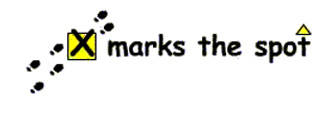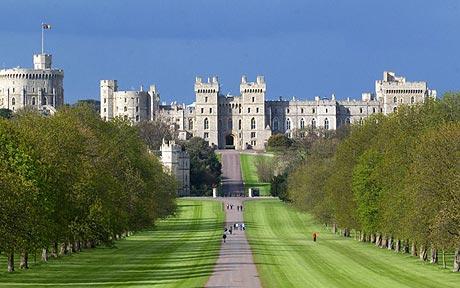
Any group. Any occasion. Any where.
Business Treasure Hunt Case Studies
- Clues Only Finance Themed Treasure Hunt
- Fully Facilitated Team Building Treasure Hunt
- Awayday Activities and Offsite Events
- Corporate Incentive Trip with Christmas Theme
- Business Meetings and Conferences
- Teamwork, Charity and Fun Combined
- The Apprentice Themed Treasure Hunt
- Mystery and Whodunnit Treasure Hunts
- Treasure Hunts at Night
- Indoor Treasure Hunts
- Treasure Hunts using Mobile Phones
Examples of hunts for private events
Browse all Treasure Hunts in the UK
Browse all Treasure Hunts in Europe
Find a Treasure Hunt for any occasion
Anniversary
Birthday
Charity or Fundraising
Christmas
Corporate & Team Building
Couples
Family Day Out
Group or Club Outing
Hen Party or Hen Weekend
Reunion
School, College & University
Social Events
Special Celebration or Party
Stag Party or Stag Weekend
Visitor, Tourist & Tour Group
Wedding
Planning a function at a hotel or other specific venue? Check out our indoor and venue-based treasure hunts
An unrivalled range of Themes, Formats & Clues
 A treasure hunt is only as good as its clues, format and theme, and how well matched and appropriate they are to the group taking part.
A treasure hunt is only as good as its clues, format and theme, and how well matched and appropriate they are to the group taking part.
Pitching a treasure hunt correctly is a skill - and it's important because different groups have different needs.
One of the advantages of MadeToMeasure® treasure hunts is that you can have a say in the clues, format and theme if you wish - or you can leave some or all of this to our understanding of your group's needs and our experience and if you prefer.
Treasure hunt formats
Every treasure hunt has a format. X Marks The Spot defines format as the type and style of treasure hunt - in other words how the treasure hunt is structured, what participants have to do, how they get around between clues and what determines who the 'winner' is.
Examples of simple formats include:
- A 'traditional' treasure hunt - where solving one clue leads to the next and generally the first team back with a single correct answer wins.
- A scavenger hunt - where items are collected en route with most collected the winner.
- A points-based treasure hunt - where the objective is to get the maximum number of points (or similar) by solving clues that each have an assigned points value.
Most treasure hunt formats are time-bound - where participants must return by a particular time, or if a staggered start, each team must not take longer than a given duration - otherwise penalties are incurred.
In our adult treasure hunts in particular, many of the simple formats can be extended. For example the 'items' in scavenger hunts might include specific photos to be taken or tasks to be carried out or items to be brought back for the least amount of money spent. These days it is less common for physical items to be hidden on treasure hunts as they can get disturbed accidentally or occasionally maliciously.
Certain formats can be supported by equipment and technology. Combination locks, key padlocks, scratchcards, mechanical code breakers, digital cameras, satellite navigation (GPS) and mobile phones (e.g. for text messaging, internet, apps, helpdesk, photos, voice clues) are among the devices that have featured in our hunts.
Apart from the customary treasure hunt on foot, participants could use one or more of public transport, private car, double decker bus, black taxi, boat/rib, bicycle, rickshaw etc to get around, largely depending on location, occasion and budget.
Formats are often combined in a single treasure hunt. Some combinations of format and mode of transport work better than others in certain situations - depending among other factors, on the location, size of group, who's running the treasure hunt, and how, where and by whom the answer marking is to be conducted.
As you might expect, X Marks The Spot is familiar with a wide range of treasure hunt formats and their pros and cons and is at the leading edge in developing new formats.
Treasure hunt themes
A treasure hunt need not necessarily have a theme but if you'd like one you are free to choose your own, or we can help. X Marks The Spot defines a theme as something that runs as a thread throughout the treasure hunt, such as in the content of the clues and answers.
A theme can also influence the treasure hunt format and can appear in items to be scavenged, branding and appearance of the materials, what participants wear during the hunt (!) and team names.
Themes can cover absolutely anything and can relate to:
The occasion - good for hen treasure hunts, birthday treasure hunts, wedding treasure hunts and anniversary treasure hunts where the clues can be themed around the life or interests of the individual or couple celebrating - making the treasure hunt a truly personalised experience.
The group taking part - good for schools where the theme might be a particular subject or venue and for corporate groups where the theme could be a sales conference message, company product or job related (such as a Finance or money theme).
The time of year - Easter, Christmas or St Valentine's Day for example.
A topical event - Wimbledon tennis, Football World Cup, British Open Golf, The Olympics, University boat race, Six Nations Rugby. Good for groups or individuals with a particular sporting interest. These themes often influence the scoring format of the treasure hunt, the rounds within the treasure hunt and team names.
Specific interests of an individual or group - Star Trek, Sherlock Holmes, Celebrities, Charles Dickens, TV, Sport, Royal family, Beer, Travel, Shakespeare, History, Fashion, Ghosts, Films, Animals, Current affairs, Music and so on.
Bespoke storylines - Spies, Corporate espionage, Murder Mystery etc.
Games, TV programmes & Quiz shows - Monopoly, Scrabble, Cluedo, The Apprentice, The Chase, Who Wants to be a Millionaire, Crystal Maze, Amazing Race etc. While these are largely formats they can be considered themes too.
Some themes are particularly good for developing particular skills such as negotiating, communication, creative thinking, resourcefulness, collaboration, planning and leadership.
As you might expect, themes stimulate X Marks The Spot's creative juices and we've handled some pretty sophisticated and unusual requests.
Unlike some other treasure hunt providers X Marks The Spot doesn't restrict themes or formats to particular locations (unless logistically impossible, such as no car treasure hunts on Sark). It is also possible to get a themed treasure hunt from us that doesn't require us to facilitate it for you.
Treasure hunt clues
If good clues lead to good treasure hunts, what do great clues lead to?
A. The treasure
B. Great treasure hunts
C. Repeat business
D. Phone a friend
The best treasure hunts get everyone involved through clues that require a mix of skills, knowledge and creativity to solve. From the cryptic to the seemingly obvious and from the straightforward to the downright devious, X Marks The Spot's MadeToMeasure® clues are written with the specific group taking part in mind.
Our experienced clue-setters know what works and what doesn't. Depending on the group you can expect a combination of puzzles, code-breakers, cross-references, anagrams, tasks, riddles, brainteasers, crosswords, photos, poems, word games, number challenges themed clues and more.
The variety of clue types cater for the natural variations in the way different individuals think, behave and solve problems - so that the treasure hunt offers something for everyone.
Dare you put your collective powers of deduction, observation, general knowledge, lateral thinking and creativity to the test?
MadeToMeasure®
Key Features
- Treasure hunts in any location for any size of group and any occasion
- On paper, on smartphone, on tablet or online
- Tailor-made to fit your requirements, schedule and any other plans
- Any theme, format or mode of transport
- Self-run or Managed by our event professionals
- Ideal for corporate events and special occasions
- Free, no obligation quote
Testimonials
“The aim of our Copenhagen Treasure Hunt was to build teamwork amongst individuals across the globe who work together, but only usually communicate by conference call and e-mail. We’re a competitive bunch. Planning, leadership, problem-solving and decision making skills were put to the test with an interesting mix of questions, locations and puzzles! Good fun was had by all”
